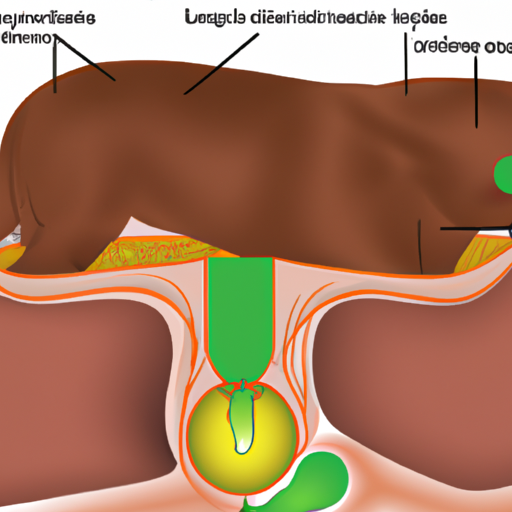Understanding Bile and its Role in a Dog’s Body
As a dedicated caregiver, you’re probably familiar with every whimper and wag of your beloved furry friend. But do you know what’s happening inside their body? Specifically, do you know what bile is and the role it plays in your dog’s digestive system?
Bile is a yellowish-green fluid produced by the liver and stored in the gallbladder. When your dog eats, bile is released into the small intestine to aid in the digestion of fats and the absorption of fat-soluble vitamins (A, D, E, and K). While it might sound unappetizing to us, bile is absolutely essential for your dog’s overall health.
How Bile Impacts a Dog’s Digestive Health
Since bile is so crucial to digestion, any problems with bile production or release can have a significant impact on your dog’s health. Bile helps break down fats into fatty acids, which can then be absorbed into the body. Without enough bile, your dog may not properly digest their food, leading to malnutrition and weight loss.
Bile also helps eliminate waste products from the body. The liver filters out toxins from the blood and excretes them into the bile. If these toxins aren’t properly eliminated, they can build up in your dog’s body and cause serious health issues.
Recognizing Signs of Bile Disorders in Dogs
It’s crucial to recognize the signs of bile disorders, as they can indicate serious underlying health issues. Some common symptoms include:
- Loss of appetite
- Weight loss
- Lethargy
- Vomiting, especially if the vomit is yellow or green (indicating the presence of bile)
- Abdominal pain or discomfort
If you notice any of these symptoms in your dog, it’s important to contact your vet immediately.
Managing Bile Disorders in Dogs
When it comes to managing bile disorders in dogs, the focus is on treating the underlying cause. This could involve changes to the diet, medication to increase bile production or flow, or even surgery in severe cases. Here are some potential treatments:
- Dietary changes: A diet low in fat and high in fiber can help improve bile flow and reduce symptoms.
- Medication: Drugs like ursodiol can help dissolve gallstones and increase bile flow.
- Surgery: In severe cases, surgery may be needed to remove gallstones or treat other underlying issues.
FAQs About Bile in Dogs
What causes bile disorders in dogs?
Bile disorders can be caused by a variety of factors, including liver disease, gallbladder stones, or certain medications.
Can a dog live without a gallbladder?
Yes, dogs can live without a gallbladder. If the gallbladder becomes diseased or damaged, it may need to be surgically removed.
What does it mean if my dog vomits bile?
If your dog vomits bile, it could be a sign of a bile disorder or other digestive issue. You should contact your vet if you notice this symptom.
Can diet affect bile production in dogs?
Yes, diet can impact bile production. A diet high in fat can cause the liver to produce more bile, while a diet low in fat may reduce bile production.
How is a bile disorder diagnosed in dogs?
A bile disorder is typically diagnosed through blood tests, ultrasound, or other imaging studies.
Remember, as a caregiver, your dog’s health is in your hands. Understanding the role of bile and recognizing the signs of bile disorders can help you ensure your dog lives a long, healthy, and happy life.



